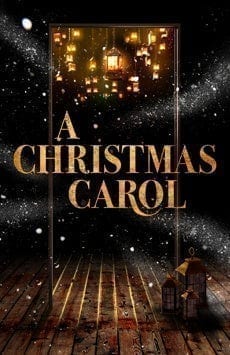The Importance of Being Ernest Hemingway is a theatrical abomination – and symptomatic of a growing problem!
The Importance of Being Ernest Hemingway (½ star)
It might seem like an intriguing idea to co-mingle the trenchant wit of Oscar Wilde with the machismo of Ernest Hemingway. One might even be crazy enough to imagine the two leading men in Wilde’s brilliant social satire, The Importance of Being Earnest’s Jack and Algernon, played as hard-drinking ‘Hemingway men’ and how a subliminal attraction between the two might lead to homoerotic overtones in Wilde’s comedy. But that’s as far as that kind of intellectual exercise should go. It’s obvious to anyone familiar with Wilde and Hemingway’s work that such an idea should remain a “what if” that’s never acted upon or brought to fruition.
Unfortunately, director James Rutherford and dramaturg Elliot B. Quick ignored logic, taste and common sense by melding the work of Wilde and Hemingway into an abomination called The Importance of Being Ernest Hemingway. Thankfully, its run at the Access Theater last month was short. Rutherford and Quick undoubtedly thought they were being daring with their theatrical experiment, but theirs is a daring filtered through stupidity and arrogance. Lots of young kids graduate from drama school and then can’t find work so they start their own theatre companies. New companies spring up almost every day. But most of those misguided companies don’t desecrate one of the greatest comedies ever written by completing missing the point of what makes it brilliant in the first place. Heaven knows, liberties have been taken with Wilde’s Earnest before, but never before with such a brazen disregard for the author they’ve coopted or the audience’s time.
Now set in 1920’s France, Rutherford & Quick’s Ernest makes Jack and Algernon expatriates who spend their time drinking when they’re not brooding or wrestling. Much of the amalgamation was Wilde’s comedy line for line, but every ten minutes or so there was a deadly insertion of Hemingway’s prose that came out of nowhere and felt like a sledgehammer to the back of your head. Of course, Wilde’s Earnest must remain set in the 1890’s since its entire point is to make fun of the Victorian manners of the day. It’s a perfect play, both in construction and dialogue, with every line capable of getting a laugh. But Rutherford clearly wanted a dark, brooding drama, filled with portent and subtext, and that’s what his cast gave him (kind of) to the slack-jawed bewilderment of the audience. At the performance I attended, there was literally no laughter from the audience, just stunned silence. After enduring the first two acts of their pretentious experiment (almost two hours in a theatre with no air-conditioning) I’d had enough – I didn’t need to see act three. I know self-indulgent claptrap when I see it.



